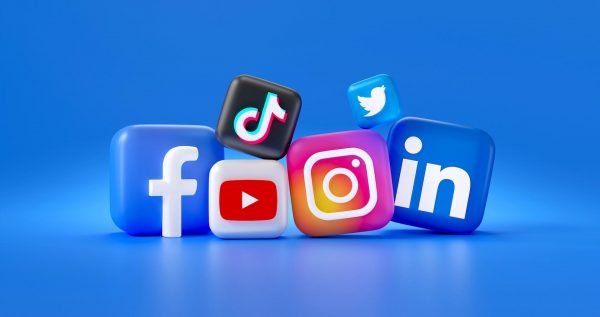Social media has become a huge part of our daily lives. Platforms like Facebook, Instagram, X (formerly Twitter), and TikTok allow us to connect with friends and family, share our lives, and stay updated with what’s happening around the world. However, while there are many benefits, there are also impacts of social media on mental health. In this article, we explore the effects of social media on mental health and offer tips for using it healthily.
Register to attend the CN Business Mixer
Positive Effects of Social Media
-
Staying Connected
Social media helps us stay connected with friends and family, even when they live far away. It allows us to share updates, photos, and messages, which can strengthen relationships and provide emotional support.
-
Finding Communities
People with specific interests or those who feel isolated can find communities on social media. For example, there are groups for hobbies, health conditions, and support for personal challenges. These communities can provide a sense of belonging and understanding.
-
Access to Information
Social media is a great way to stay informed about news and current events. It can also be a source of educational content on a wide range of topics, from health tips to DIY projects.
-
Self-Expression
Platforms like Instagram and TikTok allow users to express themselves creatively through photos, videos, and other content. This can be a positive outlet for creativity and self-expression.
Negative Effects of Social Media
-
Comparison and Envy
One of the biggest downsides of social media is the tendency to compare ourselves to others. Seeing friends or celebrities sharing their “perfect” lives can lead to feelings of envy and inadequacy. This can negatively impact self-esteem and mental health.
-
Fear of Missing Out (FOMO)
Social media can create a fear of missing out on events, experiences, or trends. This constant need to stay updated and connected can lead to anxiety and stress.
Sign up for the Connect Nigeria daily newsletter
-
Cyberbullying
Unfortunately, social media can be a platform for negative behaviour like bullying and harassment. Cyberbullying can have severe effects on mental health, including depression and anxiety.
-
Addiction
Many people find themselves spending hours scrolling through their social media feeds. This can lead to addiction, where social media use interferes with daily activities and relationships. It can also contribute to feelings of loneliness and isolation.
-
Sleep Disruption
Using social media late at night can disrupt sleep patterns. The blue light from screens can interfere with the body’s natural sleep-wake cycle, making it harder to fall asleep and get quality rest.
How to Use Social Media in a Healthy Way
-
Limit Your Time
Set time limits for how long you spend on social media each day. Many smartphones have features that allow you to track and limit your screen time. Try to stick to these limits to avoid spending too much time online.
-
Be Mindful of Your Feelings
Pay attention to how social media makes you feel. If you notice that certain accounts or posts make you feel anxious, envious, or unhappy, consider unfollowing or muting them. Focus on content that makes you feel positive and inspired.
-
Take Breaks
It’s important to take regular breaks from social media. This can help you reset and focus on real-life interactions and activities. Try taking a day off from social media each week or having designated times during the day when you don’t check your accounts.
-
Engage Positively
Use social media to engage positively with others. Share supportive comments, like and share uplifting content, and connect with friends and family in meaningful ways. Avoid engaging in arguments or negative behaviour online.
-
Protect Your Privacy
Be mindful of what you share on social media. Protect your privacy by adjusting your account settings and being selective about what personal information you post. This can help you feel more secure and reduce stress.
-
Seek Support
If you’re struggling with the negative effects of social media on your mental health, don’t hesitate to seek support. Talk to a friend, family member, or mental health professional about your feelings. There are also online resources and support groups available.
Register to attend the CN Business Mixer
Final Thoughts
The effects of Social media on mental health are profound; both positive and negative. It can help us stay connected, find communities, and express ourselves, but it can also lead to comparison, envy, FOMO, cyberbullying, addiction, and sleep disruption. By using social media mindfully and setting healthy boundaries, we can maximize its benefits and minimize its drawbacks. Remember to limit your time online, be aware of your feelings, take breaks, engage positively, protect your privacy, and seek support when needed.
Got a suggestion? Contact us: [email protected]


